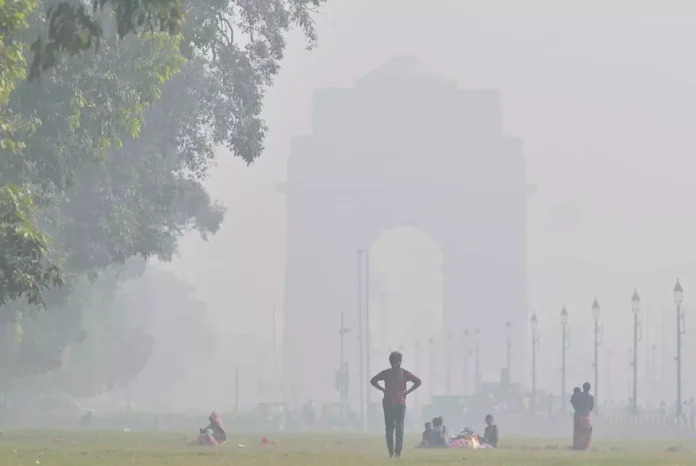New Delhi, November 26 – Following the Commission for Air Quality Management (CAQM) directive on Monday, the Delhi Government’s Directorate of Education has instructed all schools in the capital to adopt hybrid classes for students up to standard 12. The measure, combining physical and online teaching modes, aims to address the educational disruptions caused by deteriorating air quality in the National Capital Region (NCR).
CAQM’s Directive
The CAQM ordered that all schools in Delhi, Gurugram, Faridabad, Ghaziabad, and Gautam Buddh Nagar must conduct classes in a hybrid format where feasible. “State governments in the NCR shall ensure that all classes up to 12th Standard are conducted in a ‘hybrid’ mode, i.e., both in ‘physical’ and also in ‘online’ modes,” the order stated.
This relaxation follows a Supreme Court directive issued on November 25 in the case of MC Mehta vs. Union of India, which called for a review of Graded Response Action Plan (GRAP) restrictions to mitigate their adverse effects on education.
Delhi Schools Respond
The Directorate of Education has implemented the CAQM order across all government, government-aided, and unaided private schools under its jurisdiction, as well as institutions managed by NDMC, MCD, and Delhi Cantonment Board. Classes in hybrid mode are to be conducted with immediate effect until further notice.
Relaxation of GRAP Restrictions
The CAQM has eased several GRAP measures to accommodate educational needs:
- Stage-III Clause 11: Adjusted to allow hybrid classes.
- Stage-IV Clauses 5 and 8: Relaxed specifically for schools and colleges, permitting online education where feasible.
Supreme Court Observations
The Supreme Court underscored the need to prioritise education while raising key concerns:
- Mid-Day Meals: Many students are missing out on essential mid-day meals due to school closures.
- Online Access: A significant number of students lack access to online education due to inadequate facilities.
- Air Purifiers: Homes of many students do not have air purifiers, offering no significant advantage in keeping them at home.
In its judgment, the court noted, “A large number of students are being deprived of the facility of mid-day meals as schools and anganwadis are closed.” It added that many institutions are not equipped to provide online education, leaving disadvantaged students further behind.
Impact on Education
The hybrid model offers flexibility, ensuring that students can continue their education either in person or online based on individual feasibility. The move reflects a balancing act to address both health and educational priorities in the face of ongoing air quality challenges in the NCR.



